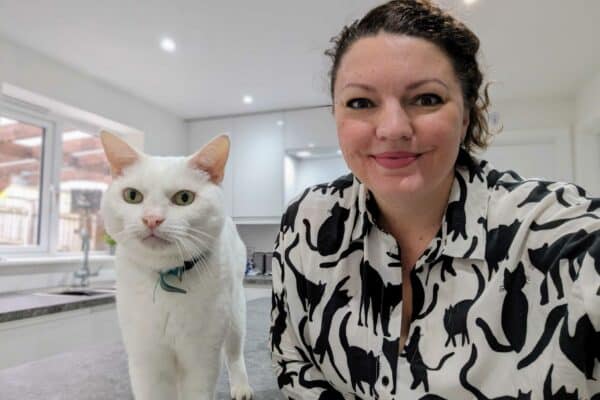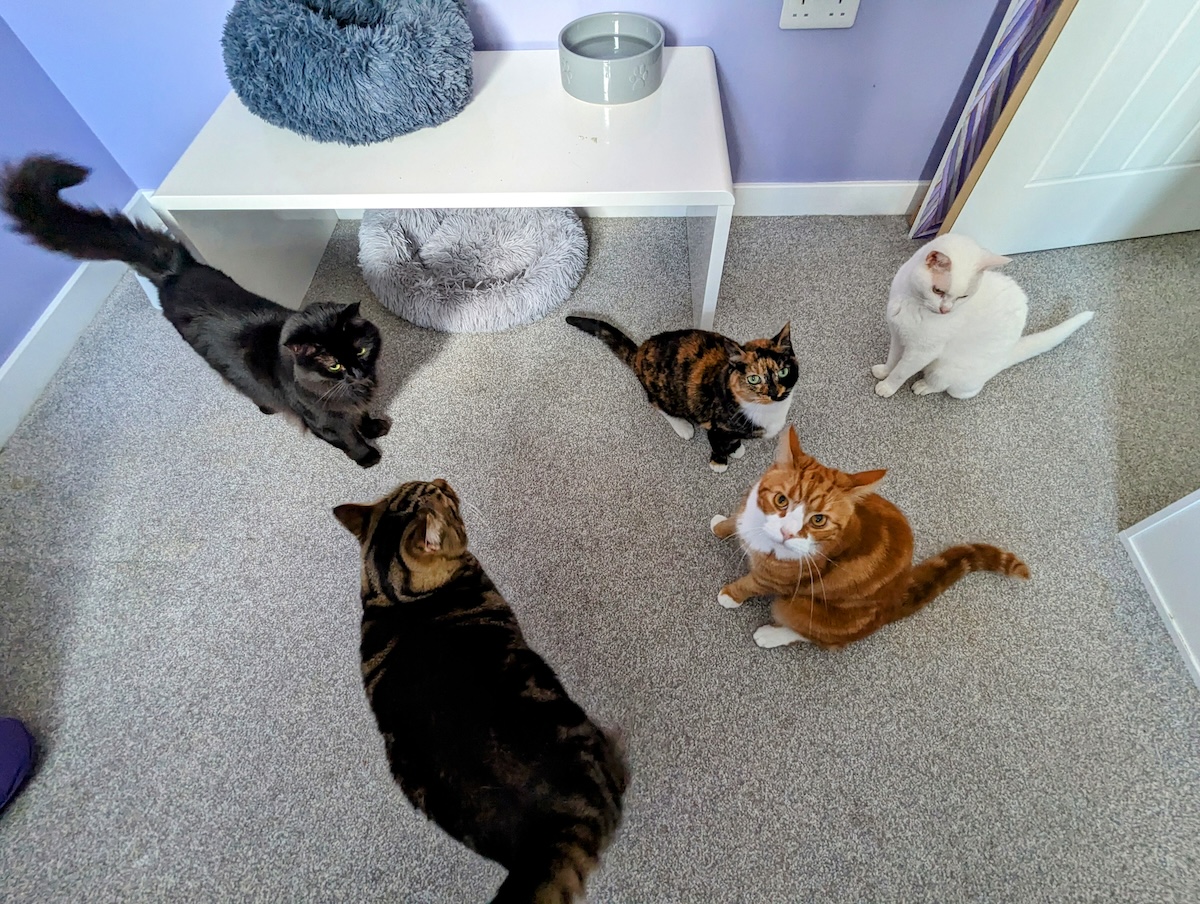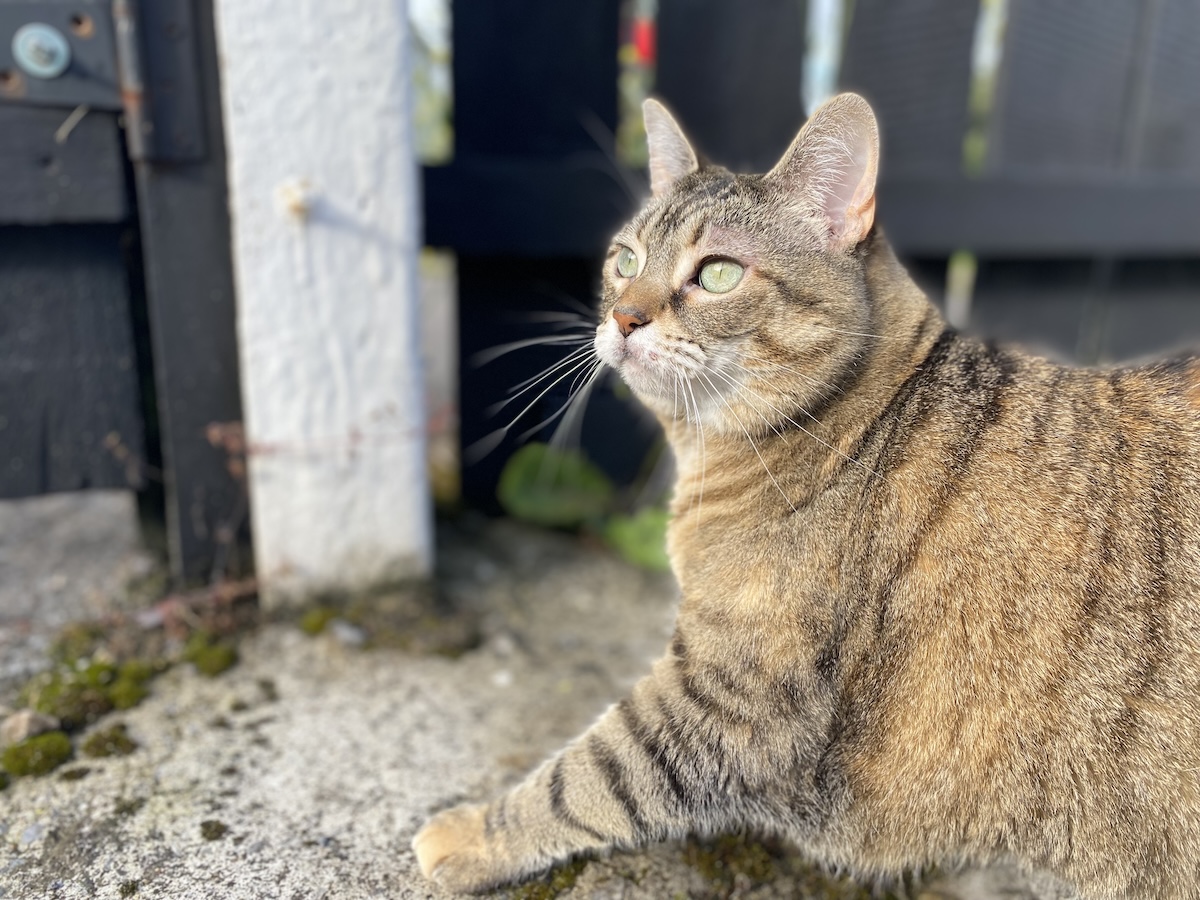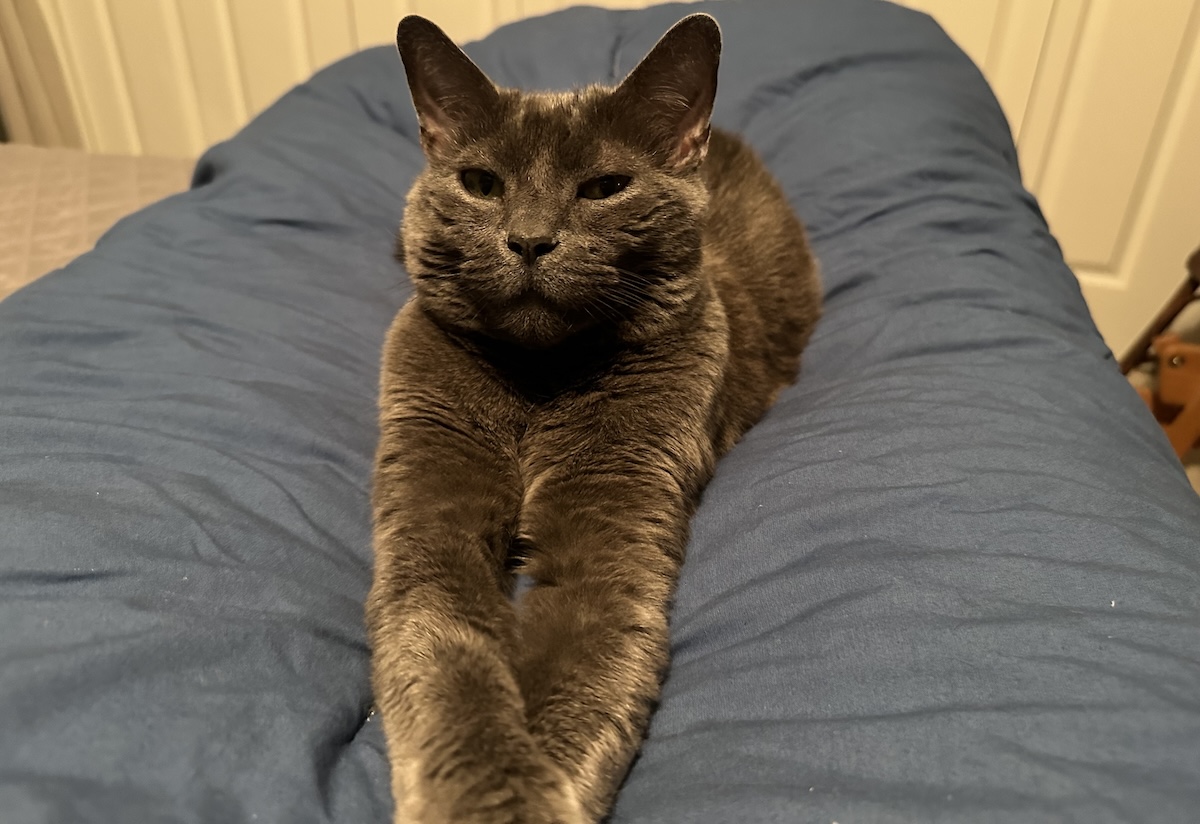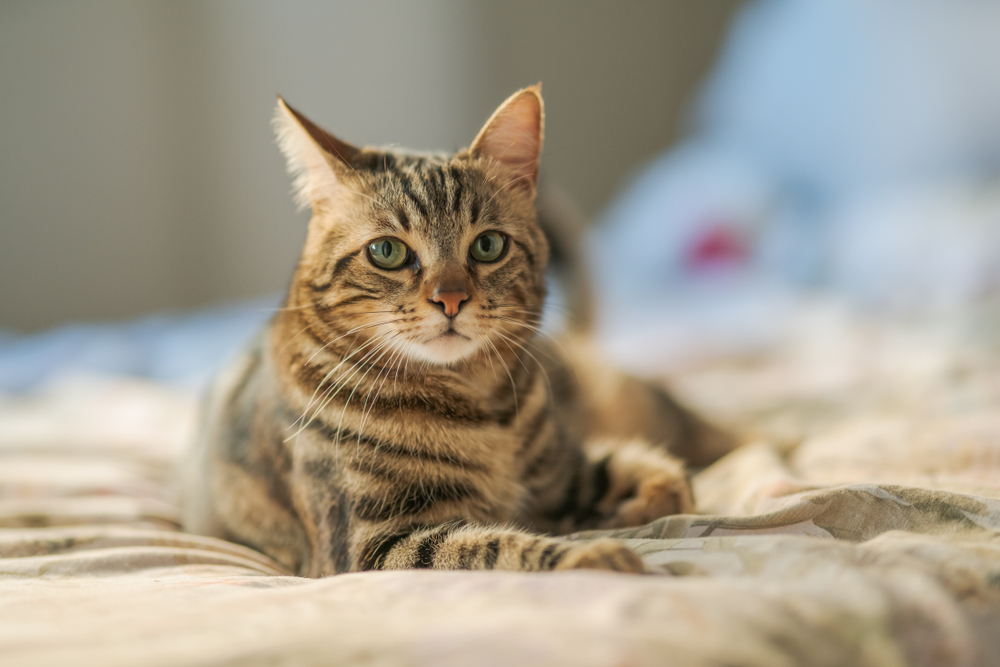You may already be aware that I share my home with a few cats. Five to be exact. Each one with its own personality, eccentricities, and quirks. They also have differing levels of greed, but, with the exception of squidgy Cyril, they all maintain quite a good body condition for indoor cats, and there is never any fighting over food.
One concern about keeping indoor cats is making sure they are entertained, enriched, and appropriately fed. It’s not always easy to exercise a cat, so one of the ways I try to make feeding time a little more interesting, and at the same time reduce the chances of Cyril eating everyone’s share, is by scatter feeding.
What Is Scatter Feeding?
Well, it’s exactly what it sounds like. When it comes to feeding my cats their dry food, I don’t use bowls. Instead, I measure the amount of food required for all five cats, and scatter this across the floor, on chairs, or their scratching platforms. Not only does this encourage them to explore and search for their food, but it also turns feeding time from a five-minute frenzy into a leisurely half-hour feast.
Scatter feeding gives everyone a chance to eat their fill, it also hugely reduces the amount of regurgitation I used to see when they would eat their food quickly. And, if there are ever any leftovers, Ned the Chihuahua is always happy to help out.
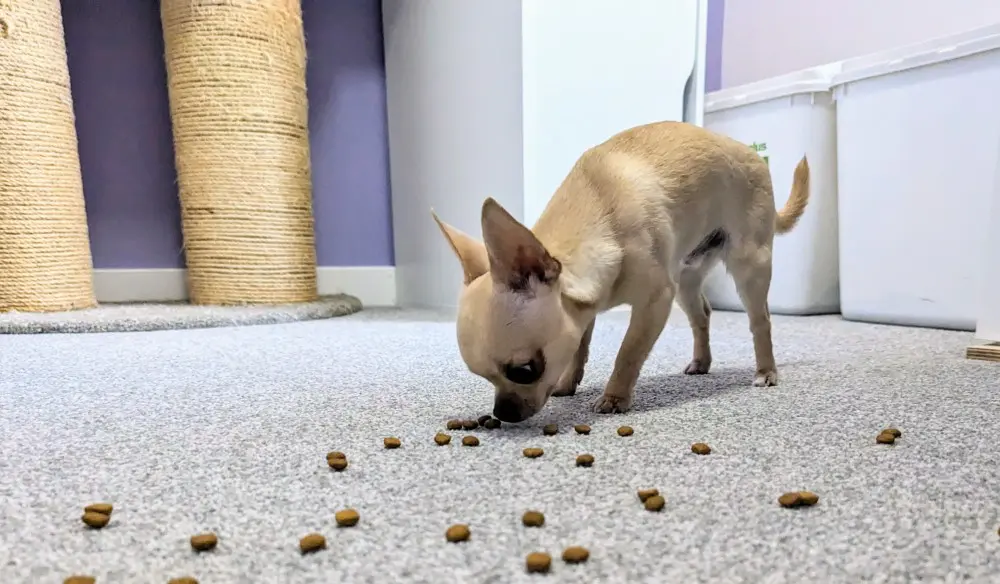
What About Wet Food?
So obviously scatter feeding wet food is a bit trickier, especially when carpets are involved! It makes me think of a carpet ad from many eons ago in Australia. But it doesn’t mean you can’t adapt the same principle.
My cats primarily eat dry food – I use Royal Canin Gastrointestinal Hairball – perfect for Clutch’s sensitive tummy, and Zelda’s long coat. It also keeps their litter box deposits small with minimal odor, which is ideal when their bathroom doubles as my office! For a bit of a treat, they occasionally get some Gastrointestinal wet food, and my alternative to scattering is to spread this food over a large baking tray.
No, I’m not just trying to get out of washing cat dishes – that just happens to be a nice little bonus!
Why Scatter Feed?
This method is particularly useful when you have multiple cats, even more so if you have greedy cats. Regurgitation is a really common complaint in cats, and the majority of the time it’s the result of eating too fast. When cats feel like they are competing for food, they are more likely to eat quickly, making them more likely to bring that food straight back up.
Although domestication may have softened their instincts, our cats are still the descendants of some of the most adept hunters in the world, so having their meals served twice daily in a bowl can get a bit tedious. By spreading their food across a wider area, we are engaging their hunting instincts, as well as physically stopping them from eating too quickly.
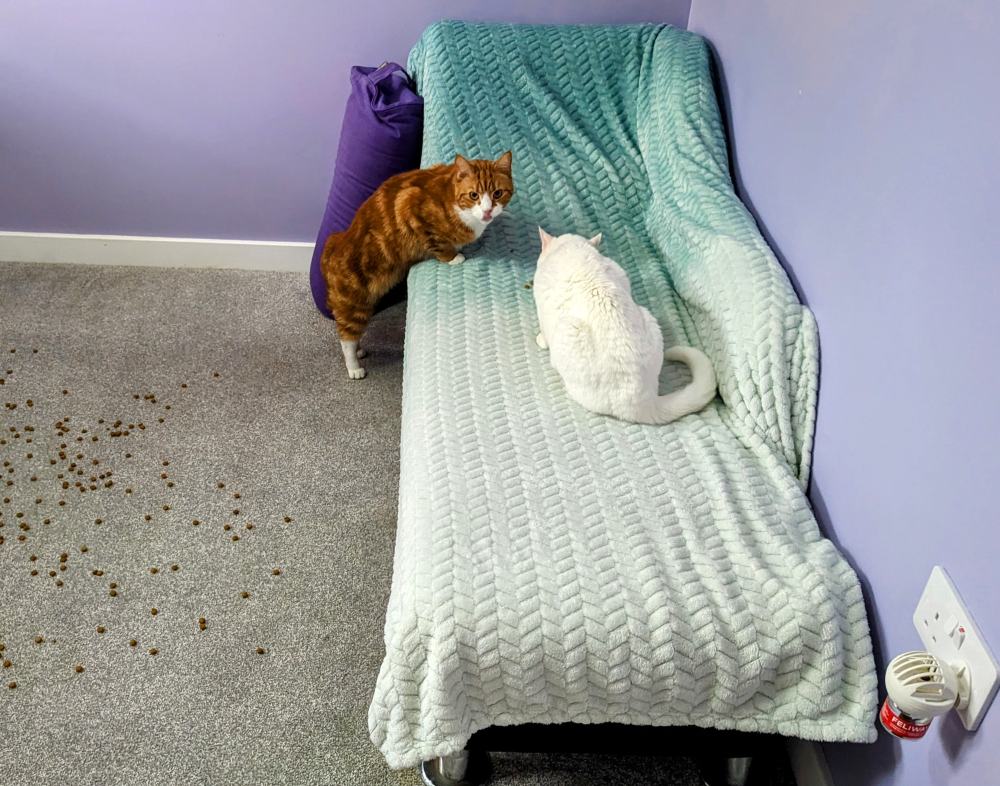
It Can Also Help Prevent Obesity
One of the most common problems I see with my patients is cats that have food left down all day becoming overweight. I call this “the cheesecake in the fridge” phenomenon**.
Let’s say I have a slice of cheesecake. Okay, it might be a big slice of cheesecake, but that’s my serving; no more cheesecake for me. But I know there’s more cheesecake in the fridge. So I have another small slice a couple of hours later. And another before dinner. Then there’s dessert…you see where I’m going with this. If there wasn’t any more cheesecake in the fridge, then I wouldn’t eat anymore, which is good – I certainly don’t need it!
The same applies to cats with bowls full of food. We should be measuring out the appropriate amount for each meal, and anything that’s left after 20 minutes should be taken up – don’t worry, your cat will soon learn to eat their fill at mealtimes! But if we fill their bowl and leave it down, they will graze throughout the day and eat a lot more than they should.
When I scatter feed, I stick to a measured amount, but it takes the cats much longer to find and eat all the food, meaning that they feel fuller for longer. And for the most part, they don’t come asking for more food until it’s time for their next meal.
**Do any other Catsters out there think of this when they hear the word phenomenon?
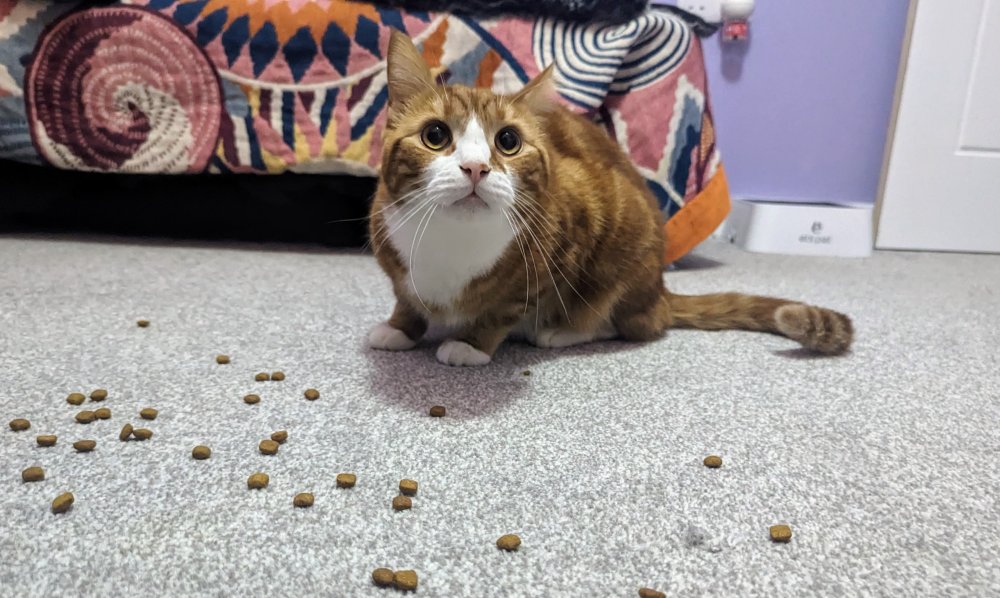
Are There Other Ways To Keep Mealtimes Interesting?
Absolutely. There is a whole slew of food puzzles for cats (and dogs) that provide a more challenging way to deliver their kibble, engaging their brain and extending feeding time. Back in the days that it was just me and Clutch, I used several different types of puzzles to keep him occupied while I was at work.
The challenge with using these in a multi-cat household is that I found that some cats were more motivated than others to work for their food, while others were either not so interested, or couldn’t work them out!
So if you’re looking for ways to keep your cats occupied while you’re out, stop the greedy cats from hogging the food bowls, and slow down the ones that like to inhale their food, you can always try scatter feeding – just be careful not to scatter it under low furniture, and I don’t recommend throwing wet cat food around the house!



